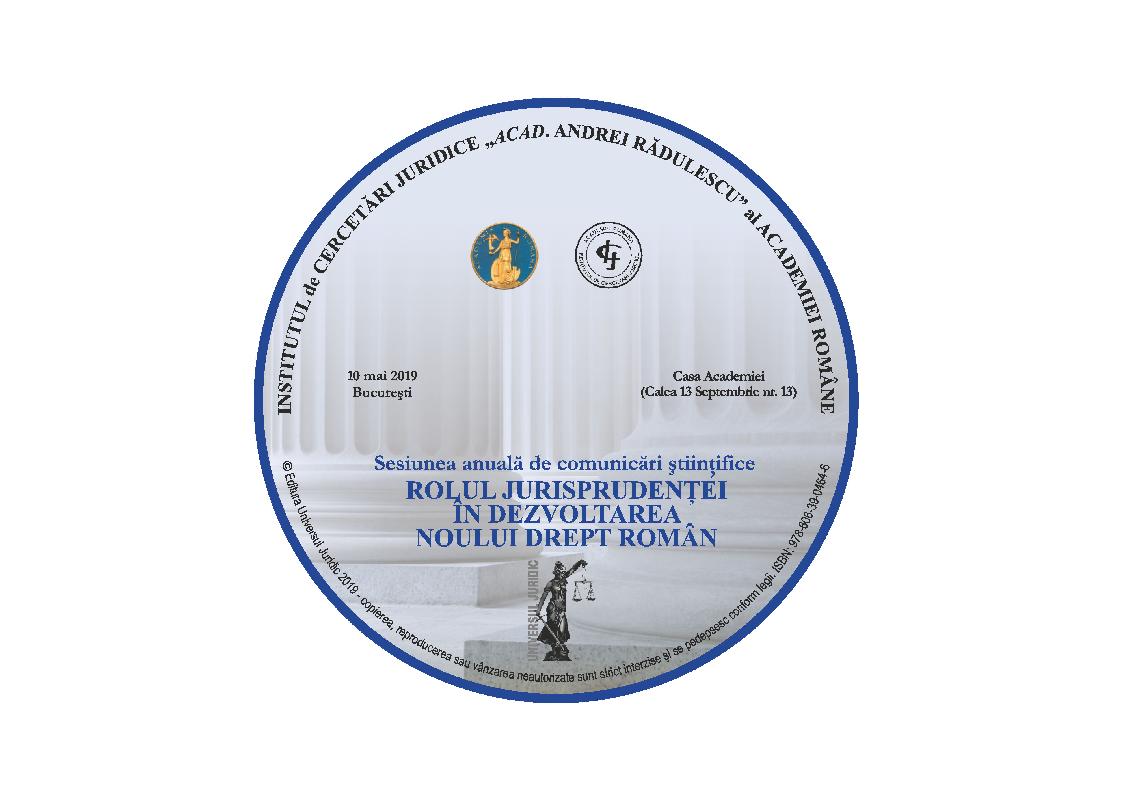REFORMA ÎN DOMENIUL JUSTIŢIEI ŞI CALITATEA ACTULUI DE JUSTIŢIE – COMPONENTE NECESARE ALE PROGRESULUI SOCIAL. ASPECTE RELEVANTE ALE CONTENCIOSULUI CONSTITUŢIONAL
Justice Reform and Quality of The Act of Justice – Necessary Components of The Social Progress. Comments on Relevant Constitutional Litigation
Author(s): Simona-Maya Teodoroiu, Ioniţa Cochinţu
Subject(s): Constitutional Law
Published by: Universul Juridic
Keywords: judicial power; justice reform; legal grounds for the functional and personal independence of magistrates; constitutional litigation on status of magistrates and relative aspects;
Summary/Abstract: The constitutional democracy means, inter alia, that the State is organized according to the principle of separation and balance of powers − legislative, executive and judicial. Also, the legislator, through the approval and enforcement of the normative acts shall take into account the main rule of law’ principles, including (but not limited to): the legality principle, as stated in the Constitution; the principle of free access to justice; the non-retroactivity of the normative provisions’ principle (with its exceptions); the principle of equality, the principle of preeminence of international and European treaties.The problem of the independence of justice must be analyzed at least under two approaches: a functional approach and a personal/subjective one. Regarding the functional independence, it requires, on one hand, that the judiciary bodies do not belong to the executive or legislative, and, on the other hand, that the courts are independent in the exercise of their functions and they are not subject to interferences from the legislative power, the executive power or individuals. As for the other approach of the independence of judges – their personal, individual independence, it may be noticed that it is linked to their legal Statute and status. Mainly, the criteria for evaluating and ranking the personal independence are the following: the recruitment of judges, the length of the appointment, the removal from office, the collegiality, the legal provisions establishing their salaries, the freedom of expression of judges and their right to set up professional organizations (in order to defend their professional interests), the incompatibilities, the interdictions, the continuous training and last but not the least the responsibility of judges.The inherent principle of separation of powers provides the judges the freedom to settle, only under the law, the cases with which they are vested, having the significance of the fact that judges cannot be subject to any interference from the other public authorities. Also, it includes both the obligation of judges to solve the cases only under the law, and on the other hand, the obligation of all the public authorities to refrain from any interference in the judicial activity. All the above mentioned aspects are reflected in substantial and relevant jurisprudence of the Constitutional Court of Romania, mainly pronounced in a priori control of constitutionality, examined with this occasion.Meanwhile, the legislator(the Parliament and the Government) shall accomplish its main constitutional duties in order to implement the necessary balance between the independence and the responsibility of judges, with the observance of the constitutional provisions in this field, and of the commitments assumed by Romania through the European and International treaties to which it is a party, as the separation of powers does not mean the lack of control mechanisms and tools between State powers and authorities, on contrary it involves the existence of a mutual control, as well as balance between the exercise of their duties.
Book: ROLUL JURISPRUDENŢEI ÎN DEZVOLTAREA NOULUI DREPT ROMÂN
- Page Range: 205-210
- Page Count: 6
- Publication Year: 2019
- Language: Romanian
- Content File-PDF

